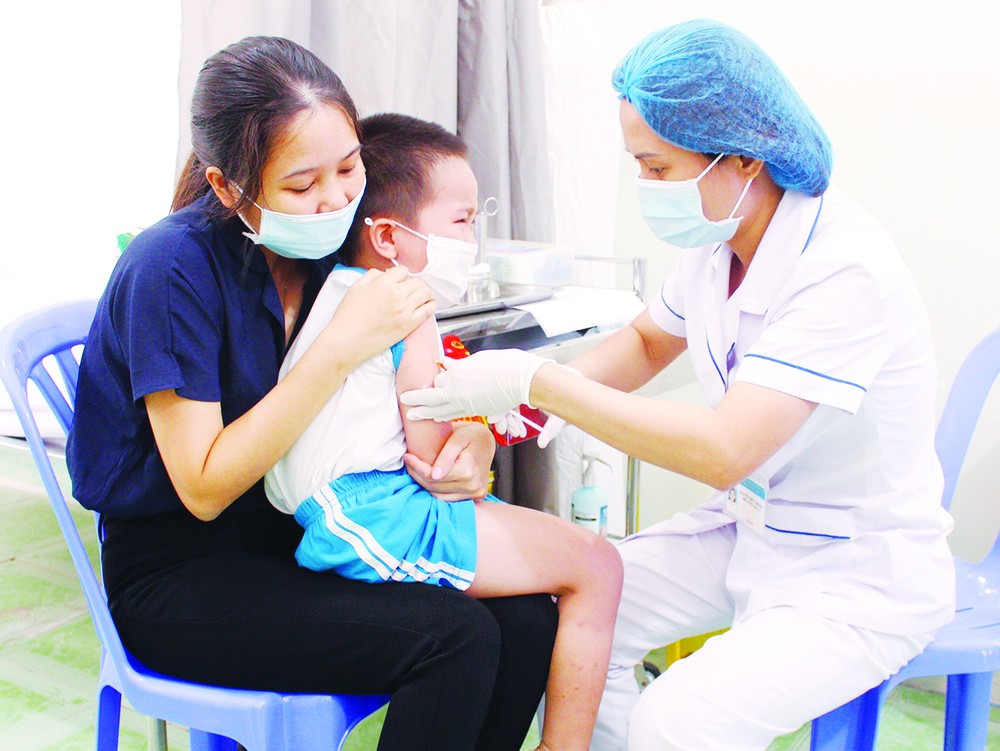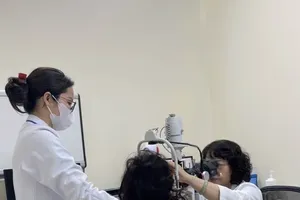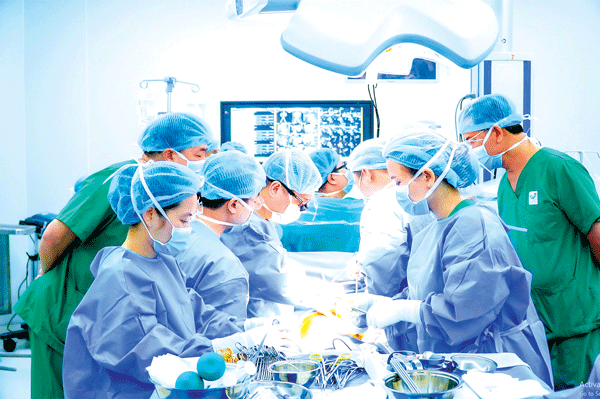
Worse, not only children but adults are at increased risk of meningitis as the bacteria that causes meningitis are transmitted from person to person through droplets of respiratory or throat secretions from carriers. Moreover, the disease symptoms can be mistaken for other illnesses like flu or common cold, which unfortunately can lead to delayed diagnosis and treatment
Children should get booster dose of Meningococcal disease, Japanese encephalitis
Hanoi recorded the first case of Japanese encephalitis (JE) in 2024. The patient is a 12-year-old boy from Phuc Tho District who was hospitalized with a high fever, headache, stiff neck, and unsteady gait. Medical workers at Hanoi-based National Children's Hospital carried out tests on his cerebrospinal fluid which was positive for the Japanese encephalitis virus.
An epidemiological investigation revealed that the boy had received four doses of the Japanese encephalitis vaccine, with the last dose in June 2019.
Dr. Dao Huu Nam, Head of the Intensive Care Department at the National Children's Hospital's Tropical Disease Center, said that children typically need a booster dose of the Japanese encephalitis vaccine every 3-5 years until they are 16 years old, after receiving three doses in the first two years of life. However, the booster dose coverage rate is low due to complacency or forgetfulness among many families.
Most children with Japanese encephalitis who are hospitalized are in very serious condition, with high fever, seizures, and coma. If detected and treated late, it can cause brain damage, irreversible damage leading to sequelae of mental disorders, paralysis, language disorders, seizures, epilepsy, Dr. Dao Huu Nam warned.
Meanwhile, since the beginning of June, Phu Tho Province has seen dozens of children with meningitis. The number of cases has increased fivefold compared to the same period in 2023. Meningococcal transmission and disease outbreaks have also been linked to environmental conditions including changes in humidity, creating favorable conditions for viruses and bacteria to thrive and attack, especially young children.
At the same time, Children's Hospital 1 in Ho Chi Minh City is treating a 9-year-old boy from the Mekong Delta Province of Dong Thap with Japanese encephalitis. The patient is still on a ventilator and his medical record shows that he has not got the vaccine against the disease.
In addition, Children's Hospital 1 in Ho Chi Minh City is also monitoring four cases of encephalitis with unknown etiology. According to Dr. Du Tuan Quy, Head of the Department of Neuroinfections at Children's Hospital 1, mosquitoes are strongly breeding in rural areas because the harvest season is over. Japanese encephalitis is a disease transmitted by the Culex mosquito (rice field mosquito), so people who have not been vaccinated or do not has prevention measures against mosquito bites are highly likely to get the disease.
Risk of serious sequelae
Recently, an outbreak of meningococcal meningitis in a family was recorded in Na Lau village in My Phuong Commune of Bac Kan Province's Ba Be District; as a consequence, four were taken to local hospitals. Ba Be District Health Center conducted an epidemiological investigation and determined that more than 350 people in the locality had been in contact with the infected cases, and the risk of the outbreak spreading widely was very high without proper medical measures.
According to Dr. Do Thien Hai, Deputy Director of the Tropical Disease Center in the National Children's Hospital, meningitis and Japanese encephalitis are diseases with high mortality and sequelae rates in young children. The disease can occur at any age, but is most common in children aged 2-8 years with an incubation period of 4-14 days, with an average of 1 week. Children usually experience the initial symptoms such as abdominal pain and vomiting. Within 1-2 days, the patient develops a stiff neck, increased muscle tone, and motor disturbances; confusion or loss of consciousness may occur.
Although meningitis and Japanese encephalitis are fatal disease, patients can be cured if they receive timely treatment. Therefore, when a child experiences neck stiffness, fever, confusion or altered mental status, headaches, nausea and vomiting, parents should take their children to medical establishments for timely treatment, said Dr. Do Thien Hai.
The best way to prevent Japanese encephalitis and Meningitis is to prevent mosquito bites, get vaccinated, and practice good hygiene by frequently washing hands with soaps and gargling and rinsing mouth and throat with common nasal and throat. Meningitis can be caused by several species of bacteria, viruses, fungi and parasites. Bacterial meningitis is the most common dangerous type of meningitis and can be fatal within 24 hours. About 20-25 percent of patients with bacterial meningitis die despite prompt treatment. Worse, 15 percent of patients die often within 24 to 48 hours of symptom onset.
Soon after a person is detected to have Japanese encephalitis and Meningitis, they should inform medical institutions.
























